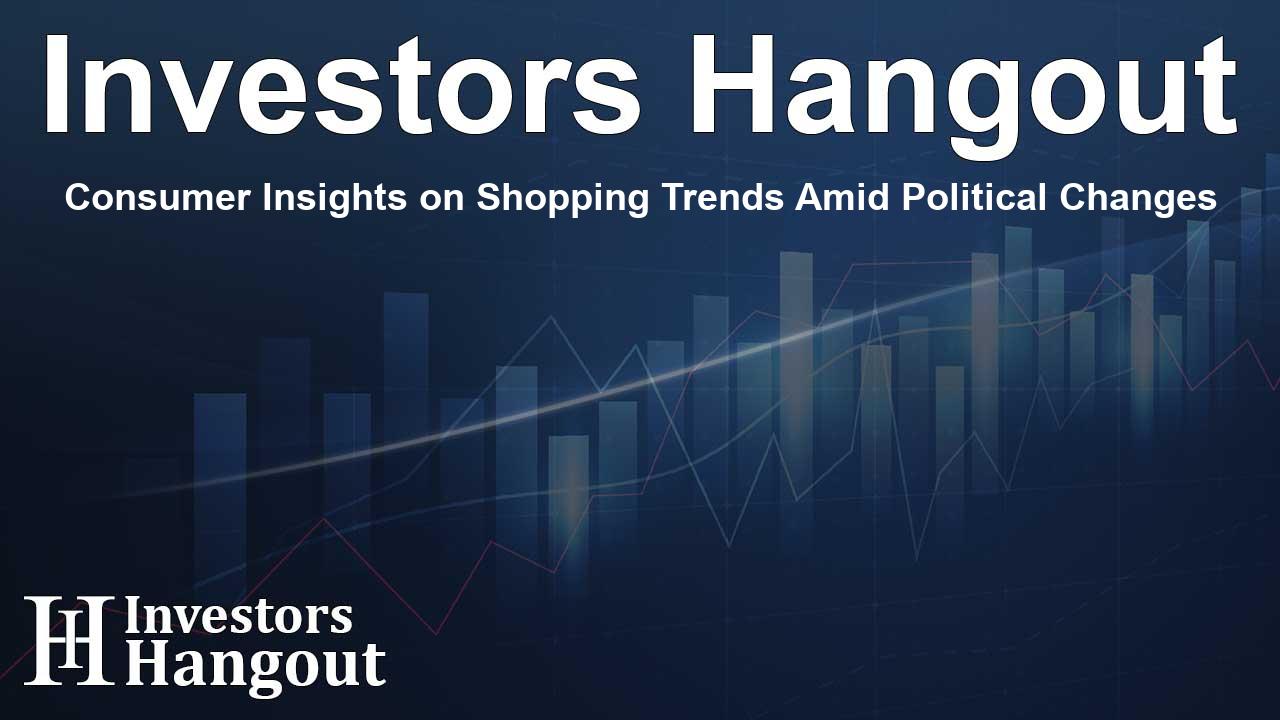Consumer Insights on Shopping Trends Amid Political Changes

Understanding Consumer Shopping Sentiments
In a world where economic and political landscapes constantly shift, understanding consumer behaviors has never been more critical. Recent research from InMoment, a leader in integrated experience improvement solutions, has unveiled pivotal findings about how proposed policies under a certain administration could shape shopping patterns and expectations. The study, which surveyed over 1,000 U.S. adults and analyzed over 45,000 social media comments, dives deep into consumer sentiments across different demographics and political affiliations.
The Current Impact of Proposed Policies
Preliminary findings from the study indicate that many consumers are not planning to alter their shopping habits at the moment, with 46% of respondents expressing no intention to change their purchasing behavior. However, a closer look at social media discussions reveals rising anxiety among shoppers concerning potential price increases. Common sentiments include concerns about purchasing electronics ahead of possible tariff hikes and considerations regarding the future of hybrid cars as green tax incentives may face cuts.
Concerns Over Tariff Impact
Despite the current stability in shopping habits, there is a prevailing sentiment among consumers that the proposed tariffs will lead to significant changes in their future shopping behaviors. An overwhelming 83% of survey participants believe that tariff increases on imported goods will directly affect how they shop. In fact, 60% of respondents indicated they plan to adjust their shopping practices due to anticipated price changes, particularly for items such as:
- Electronics
- Dining outings
Projected Price Increases
As consumers brace for changes, the anticipated price hikes are a major concern. 56% of participants foresee rising prices across a variety of goods and services. Notably, most expect these increases to affect essentials like clothing, groceries, home products, entertainment, and gas. This is echoed in comments shared on social media platforms, where individuals express worries that skyrocketing food and fuel prices may force them to stay home more often.
The Political Divide in Consumer Expectations
The study also sheds light on the political divide affecting consumer perspectives. Liberals are reportedly three times more inclined to expect changes that will cause them to shop less for essentials like clothing and groceries. In contrast, conservatives appear more optimistic, with eight times the likelihood of anticipating a decrease in clothing prices. This divide highlights the importance of understanding customer sentiments during tense political climates.
Importance of Understanding Consumer Sentiment
Jim Katzman, Principal of CX Strategy and Enablement at InMoment, emphasizes the significance of grasping consumer sentiments during politically charged times. According to Katzman, aligning business strategies with consumer expectations is essential for navigating the shifts brought on by policy changes. He believes that the insights gathered from the study can equip brands with the knowledge needed to maintain a customer-centric approach in uncertain environments.
As businesses prepare for an evolving marketplace, utilizing these findings will be crucial in addressing consumer concerns, particularly regarding pricing and convenience. Brands that proactively engage with their customers about these issues will likely foster greater loyalty and trust.
Final Thoughts on Shopping Behavior Trends
The insights provided by InMoment's study are not just numbers; they represent real consumer anxieties and aspirations during transformative political periods. Brands looking to thrive in the evolving landscape must take these factors into account, incorporating customer feedback into their strategic planning to ensure alignment with consumer needs.
Frequently Asked Questions
What is the primary purpose of the InMoment study?
The study aims to understand how proposed policies influence consumer shopping habits and expectations related to pricing.
What percentage of respondents expect to change their shopping habits?
Barely 46% of respondents indicated no plans to change their shopping habits, but many anticipate future adjustments due to tariffs.
How do political affiliations impact shopping behaviors?
Political affiliation plays a significant role, with liberals likely pulling back on shopping for necessities, while conservatives expect price decreases.
What are consumers most concerned about regarding pricing?
Consumers are particularly worried about rising prices in essential goods, such as groceries and gas, significantly influenced by proposed tariffs.
How can brands use the findings from this study?
Brands can leverage these insights to address consumer concerns about pricing and adjust their strategies accordingly to build stronger relationships with customers.
About The Author
Contact Olivia Taylor privately here. Or send an email with ATTN: Olivia Taylor as the subject to contact@investorshangout.com.
About Investors Hangout
Investors Hangout is a leading online stock forum for financial discussion and learning, offering a wide range of free tools and resources. It draws in traders of all levels, who exchange market knowledge, investigate trading tactics, and keep an eye on industry developments in real time. Featuring financial articles, stock message boards, quotes, charts, company profiles, and live news updates. Through cooperative learning and a wealth of informational resources, it helps users from novices creating their first portfolios to experts honing their techniques. Join Investors Hangout today: https://investorshangout.com/
The content of this article is based on factual, publicly available information and does not represent legal, financial, or investment advice. Investors Hangout does not offer financial advice, and the author is not a licensed financial advisor. Consult a qualified advisor before making any financial or investment decisions based on this article. This article should not be considered advice to purchase, sell, or hold any securities or other investments. If any of the material provided here is inaccurate, please contact us for corrections.
